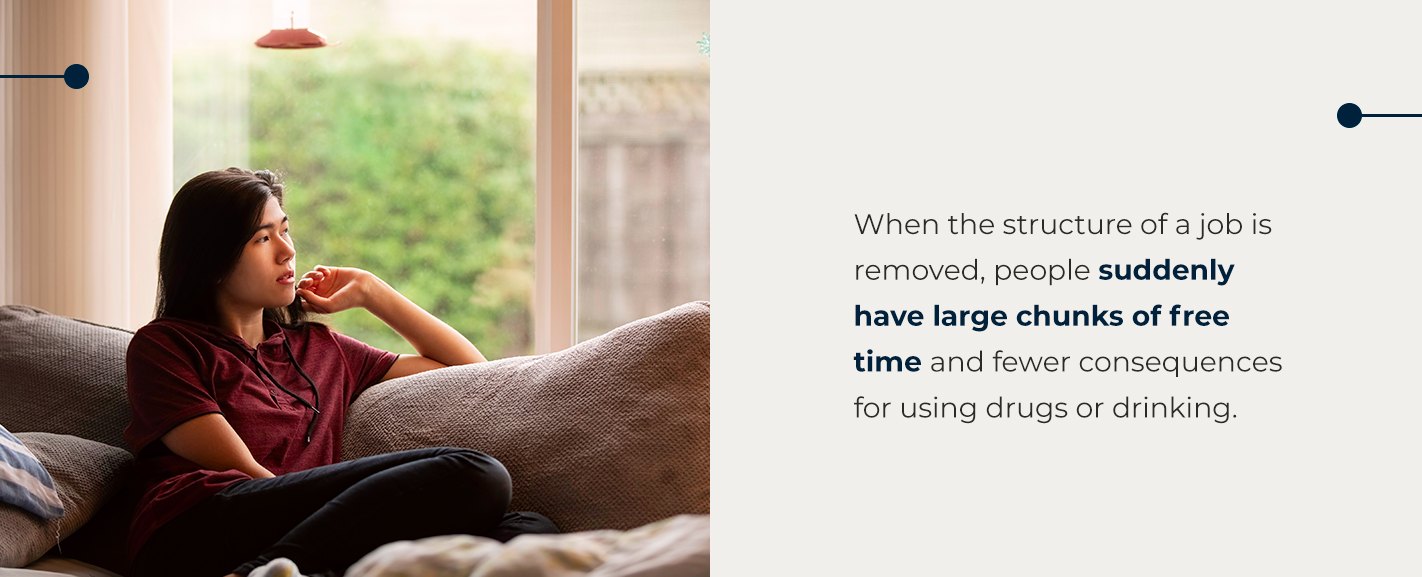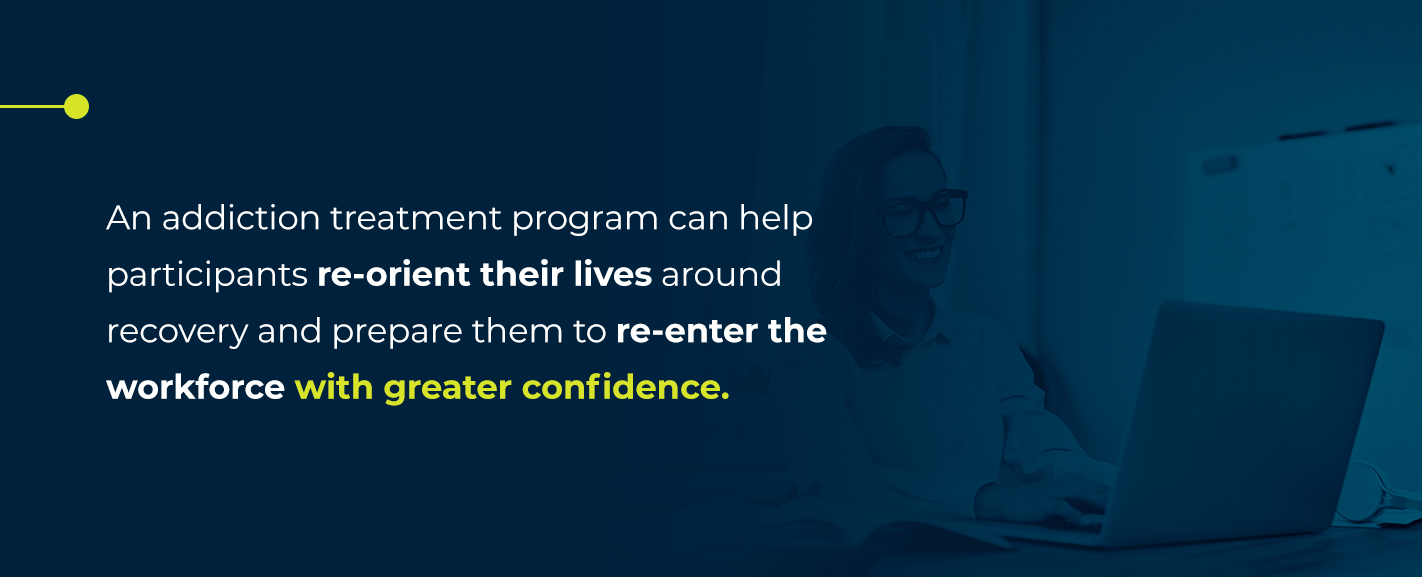- May 26
- Drug Addiction Treatment
The recent outbreak of the novel coronavirus has made a shattering impact all over the world. In the United States, a chief concern is keeping jobs and maintaining a steady income, and many Americans are struggling to do so.
According to a recent poll, 52% of adults are worried about being laid off and losing their jobs. Even worse, 39% have already lost their job, lost some of their income or had their hours reduced due to the outbreak. So, how do job loss and reduced income affect people dealing with addiction? In this guide, we’ll take a look at the effects of job loss and offer some advice on how to cope during this uncertain time.
- The Psychological Impact of Job Loss
- 1. Shame and Anxiety
- 2. Lack of Structure
- 3. Uncertainty
- The Counterintuitive Effects of Reduced Income
- Competing Priorities and Limited Resources
- How to Cope With Job Loss and Addiction
- Gateway Foundation Is Here for You
The Psychological Impact of Job Loss
Losing a job for any reason is upsetting, but losing employment due to an unforeseen, uncontrollable circumstance like COVID-19 can amount to a traumatic experience. There are several ways that losing a job can influence addiction, but here are three of the most important elements of coronavirus unemployment and addiction to consider:
1. Shame and Anxiety
There is frequently an element of shame tied to losing a job. Regardless if the loss is related to poor performance, people who are suddenly left unemployed almost always feel a sense of “what if.” What if I had done better on that project? What if I had put in extra overtime? What if I had tried harder to make the boss like me? These thoughts of personal inadequacy are often unfounded, especially when job loss occurred as the result of the virus-related economic slowdown.
These thoughts can also quickly escalate to the level of a general anxiety disorder (GAD) and cause depressive symptoms. Many people who feel anxious or depressed do not know how to healthily cope with these emotions, and even those who have some coping skills are thrown off by the unprecedented circumstances surrounding the virus. This chain of events can lead to self-medication with drugs or alcohol.
2. Lack of Structure
For most adults, work is the main scaffolding of life. Each workday is centered around getting ready for work, getting there, getting the work done and going home to rinse and repeat. For those already struggling with addiction, this daily structure provides stability and reduces the amount of time spent battling cravings.

When there’s no work to guide choices, it’s easy to make the wrong ones. This problem also affects those who are still in the early stages of addiction, accelerating the rate at which dependence develops. Someone who typically only uses drugs on the weekend may realize there is now little immediate consequence to getting high to alleviate boredom in the middle of the week and increase their consumption more rapidly than they could when employed.
This lack of structure affects single people without parents the most, though it can still have a heavy impact on those in relationships and with families.
3. Uncertainty
Losing a job also means losing stability and confidence in future plans. Someone who had a strong vision of the next several years of their life on one day could lose their job and be facing complete uncertainty the next. If you’re in recovery, this can make you feel like getting clean and sober has been pointless, despite enjoying success prior to the job loss.
For those who have previously abstained from substance abuse because it did not align with their goals, job loss can make drugs and alcohol seem less dangerous and more appealing. It becomes a “why not?” situation, where a person feels like they may never attain their goals anyway, so they don’t see the harm in self-medicating. This reaction is one of the main reasons why people start developing addictions after job loss.
The Counterintuitive Effects of Reduced Income
Reduced income is a guarantee with job loss, and it is happening at an alarming rate due to salary cuts or reductions in scheduled hours. Initially, you would think that having a significant reduction in disposable income would result in people cutting back on their drug and alcohol use. However, the opposite is often true due to the survival paradox that addiction creates.
Competing Priorities and Limited Resources
Addiction works by altering the reward circuitry of the brain. Normally, the brain rewards you for activities necessary for survival, like eating, socializing and getting quality sleep. However, drugs and alcohol produce such a big surge in reward neurotransmitters that survival activities become less appealing and important, while substance abuse becomes something the brain perceives as necessary.
This leads to a severe conflict in priorities and thought patterns that are highly illogical. For example, if someone cannot pay rent in full for the month, they may display strange logic with thoughts like: “Well, if I can’t pay the rent anyway, I might as well take some of that money and buy heroin to keep me going for the week.”
Those who fall into this thought pattern are highly susceptible to further financial mistakes and often rack up debt due to choices fueled by altered brain chemistry.
How to Cope With Job Loss and Addiction

Gateway Foundation Is Here for You
If you or someone important in your life is wrestling with coronavirus unemployment and addiction, Gateway Foundation is here to help. Our doors are open, and we are accepting patients while taking stringent precautions to protect the health of every patient and staff member.
Gateway Foundation is still providing multiple life-saving levels of care and employing social distancing measures, like reducing the size of therapy groups and providing virtual outpatient services. Drug and alcohol addiction are not slowing down because of coronavirus, and neither are we. If you need help with substance abuse and addiction, don’t hesitate to call Gateway Foundation at 877-505-4673 or get in touch with us online.


